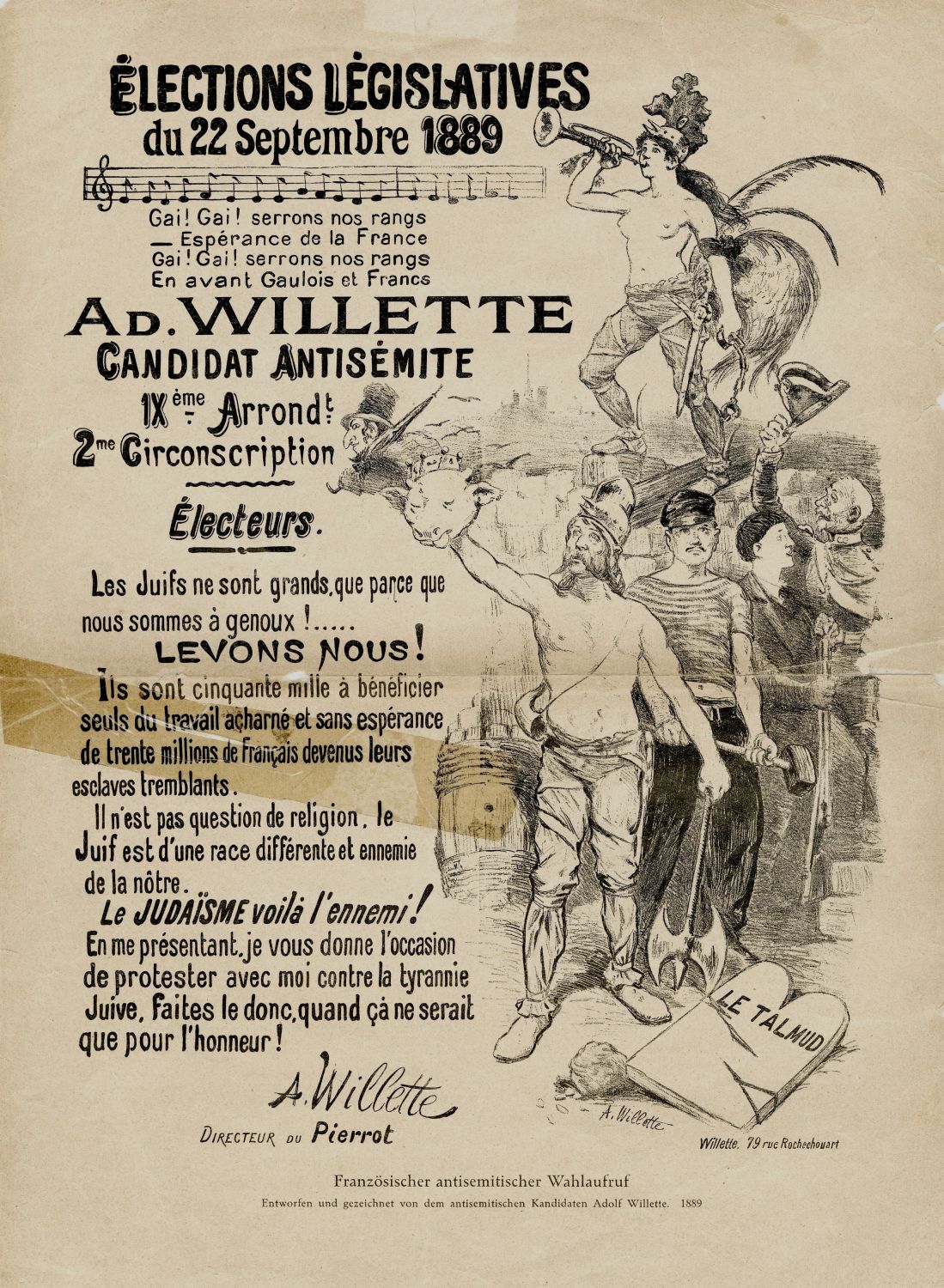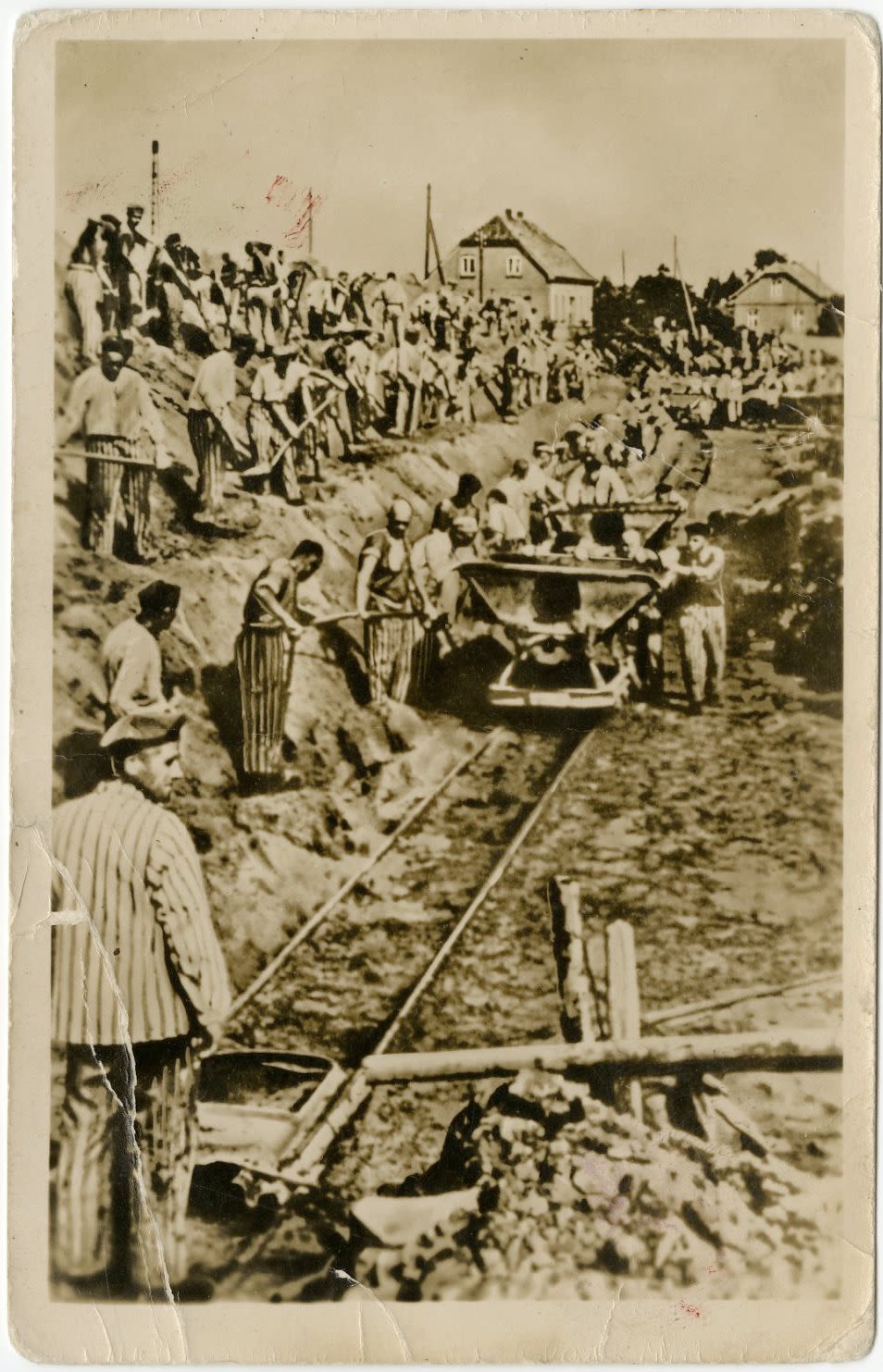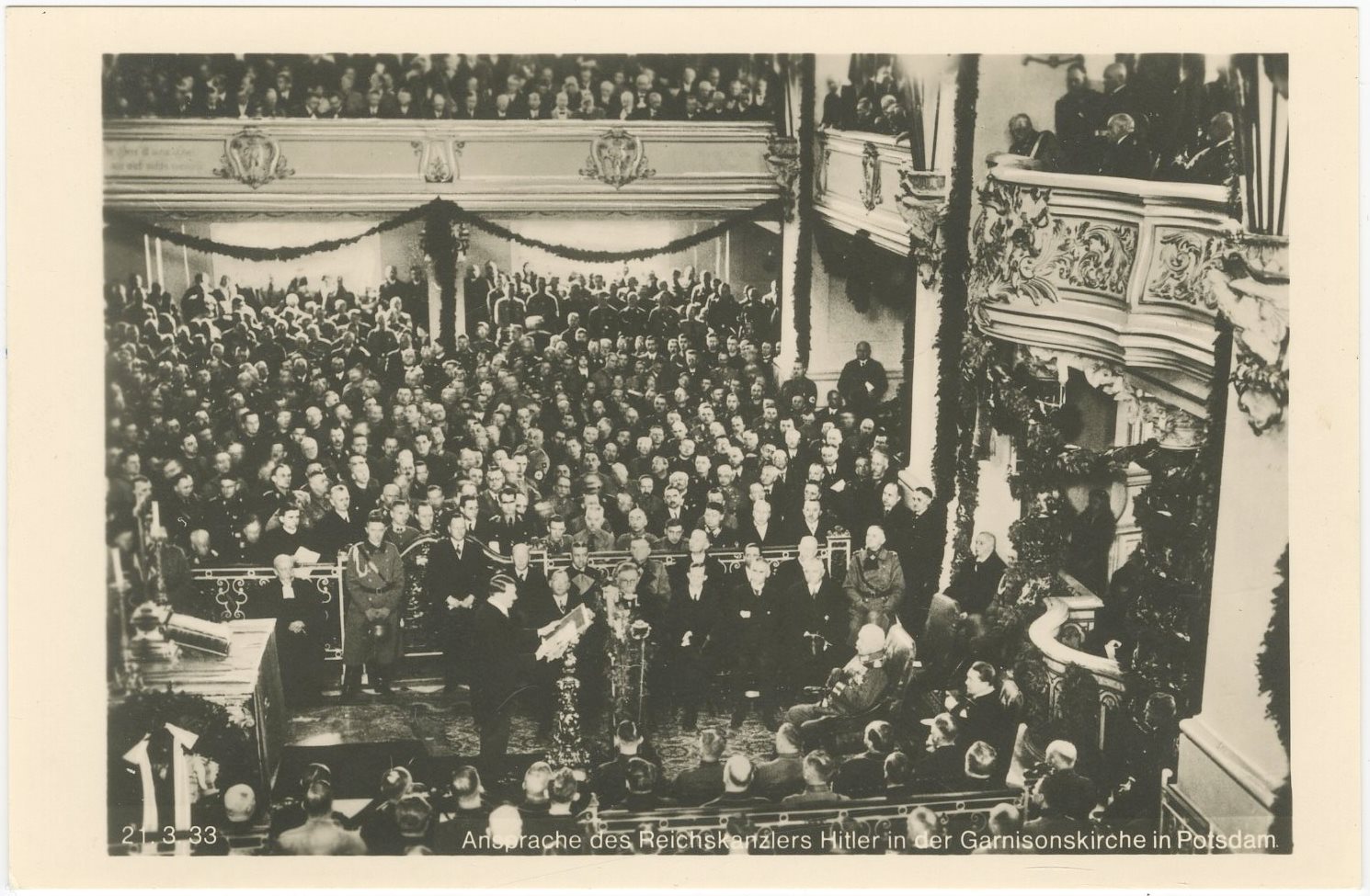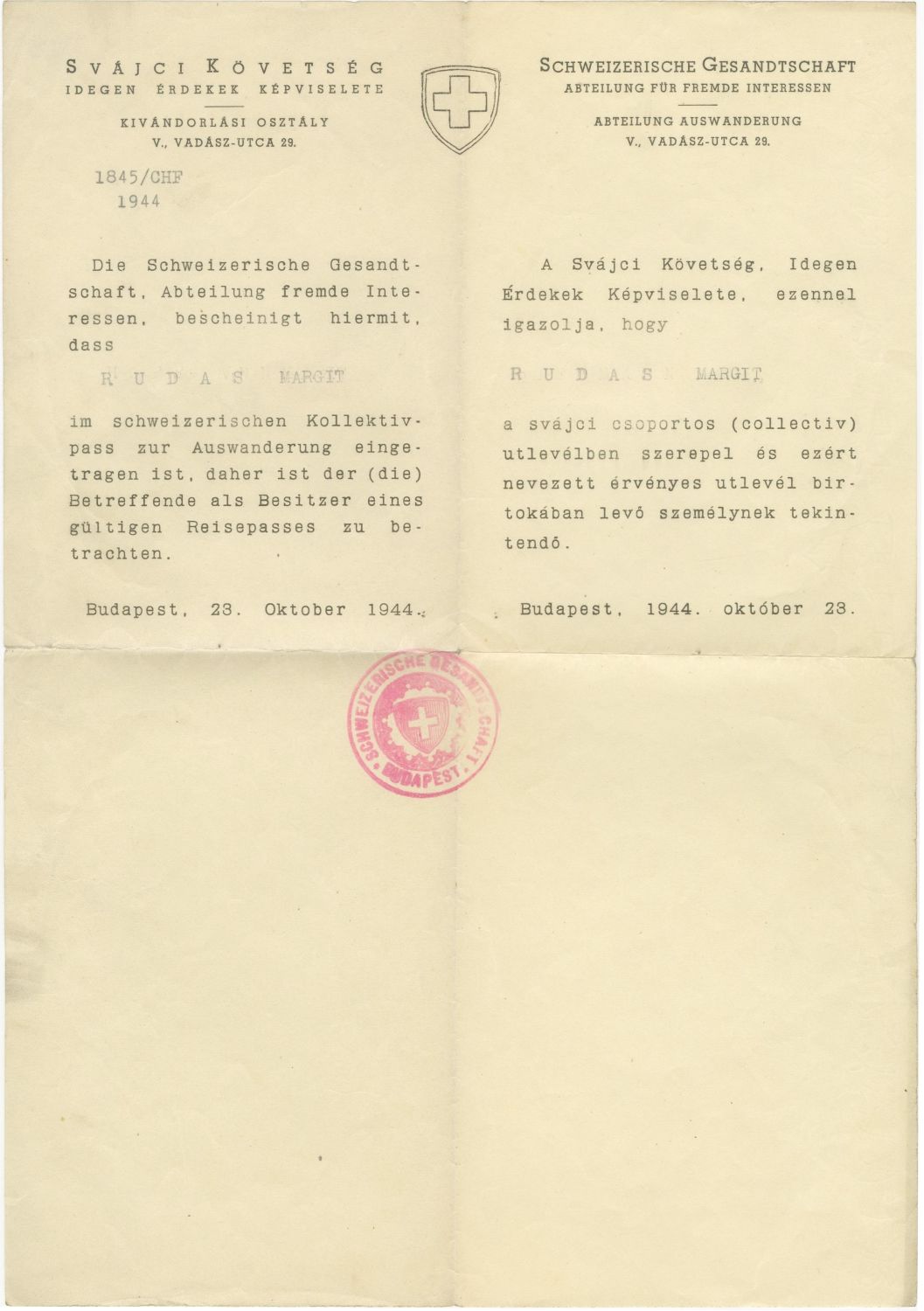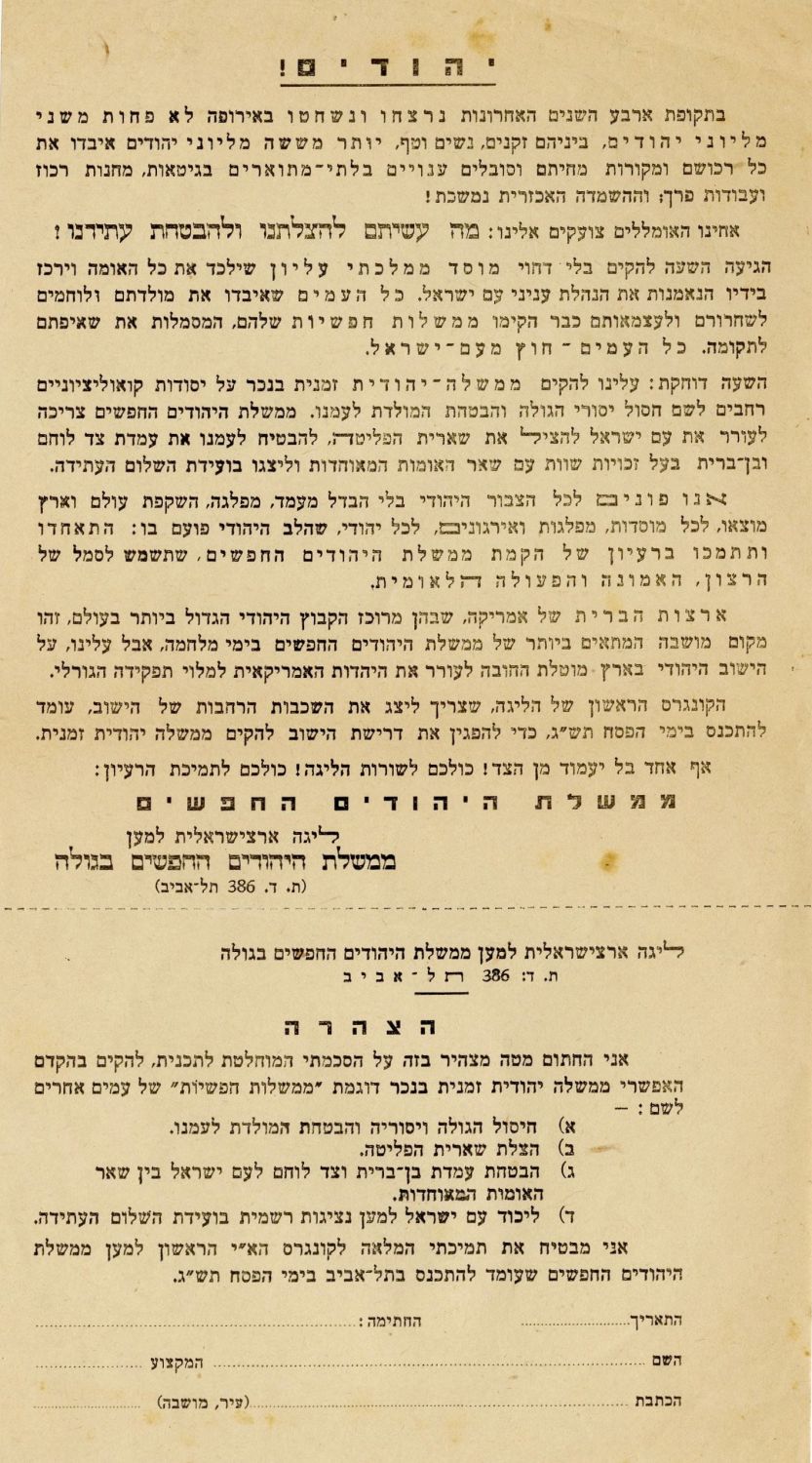Letter by Yaakov Feder - a survivor of the Bergen - Belsen camp written at the Gdański Hotel in Tel Aviv in November 1945 - about his life in the Budapest ghetto, his capture, his transfer to the Bergen - Belsen camp, his liberation by the British, and his arrival in Eretz Israel. six trembling pages - typewritten - depicting a period of about a year (beginning in June 1944) - the most difficult in Feder's life. The words were written to his relative Kobi (possibly his son), who at that time had not yet arrived in Eretz Israel. At the end of the printed letter his signature. German.
Summary of the letter: Feder describes how on June 30, 1944, Budapest suffered heavy bombing and was forced to find a hiding place near his home on Columbus Street. After a while, various warnings were heard on the radio addressed to the Jews and he decided to leave his home and find refuge with a neighbor. Shortly afterwards, an order was issued that Jews were not allowed to leave their homes, and then the search inside the homes began. Feder describes mass escapes of Jews into open areas, while many of them were shot by the "Arrow Cross". He goes on to describe how, starting on October 15, after the anti-Semitic Arrow Party came to power, a massacre of Jews took place, and the Hungarians began to recruit Jews for forced labor. Many tried to flee to a fortress near the city of Budapest but were shot on the spot. Many Jews were sent to fortification jobs, and then began to disperse in concentration camps in the Reich - these were the last months of the war, and many of them died at that time. On December 3, 1944, Feder was apprehended by the police and taken, along with several hundred Jews - women and children, to an open field near the city.
Several representatives of the Swedish authorities and the Red Cross arrived at the same field, and the Jews hoped that they would be rescued, but they soon left. Most of the Jews gathered in the same field were then taken to a place where they were waiting for a train that was supposed to take them into the unknown, some were taken to the assembly point in travel carts, the journey to the train point took several hours. Finally, the Jews were loaded onto the train in terrible density, for a journey that lasted six days in locked carriages without food and little water. There were several stations where the train stopped and local farmers sold them bread and water. Six days later the train arrived in Bergen-Belsen. In Bergen-Belsen he describes how he met many Jews he knew from Budapest who did not even heared what was happening to them in recent months (he mentions them by their last names Selig, Stern, Tausig and others), and how another train arrived with only women. When they arrived in Bergen-Belsen, they took off their clothes, put them in prisoner uniforms, and weighed them. Feder describes how in a short time even people who had power during the Aktion became Muslims, and expands on numerical details about the Jews who came to the camp, and the deceased. Feder was employed in forced labor near the camp.
One day when he got out of the a truck that drove him and other Jews out of the camp to where they were supposed to work, they noticed Allied bombing over their heads, and immediately grabbed a hiding place, and then a riot broke out. A few hours later outside the camp they realized the camp was in the process of liberation and returned to it. Feder describes how everyone's first task was to help the surviving children, and save them from the danger of typhus. After a short medical treatment, Feder was taken to Paris by the Allies. In Paris he was debating whether to return to Budapest, his city, or to immigrate to Eretz Israel and finally decided to immigrate to Eretz Israel with 17 other surviving children who took care of their shortage. The group arrived in Haifa on July 17, and in August he moved to Tel Aviv to a hotel and tried to find work. At the end of the letter, Feder asked Kobi that he will not forget to take care of little Pelly, and sends 'kisses' from Yaakov.
One of the earliest testimonies about the Budapest Holocaust and the Bergen-Belsen camp that known to us today - less than a year after the camp was liberated.
6 pages typed, and signed by Yaakov Feder. Stains. good condition.



